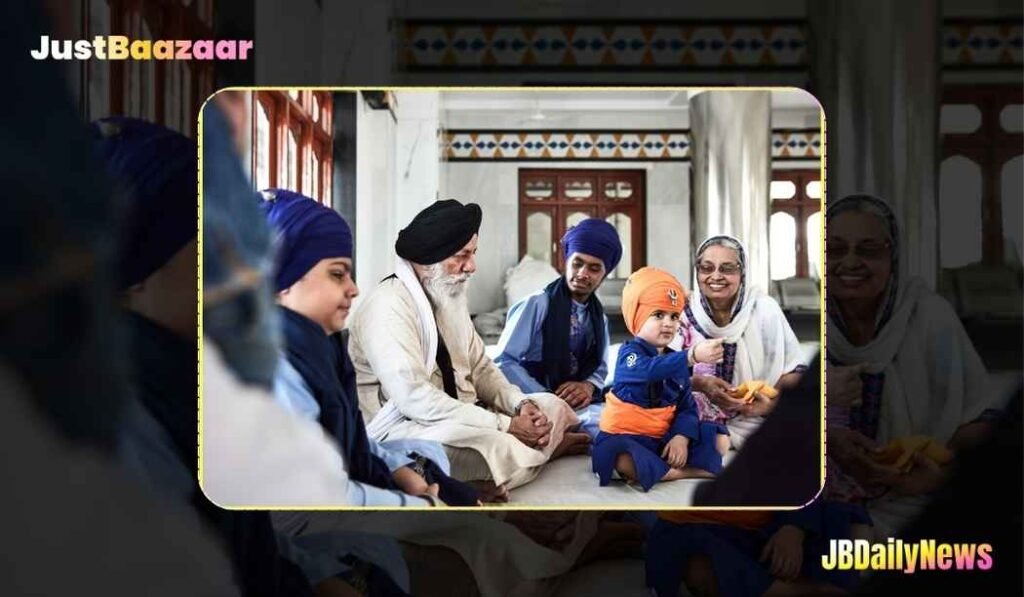The question of safety and security for the Sikh community in India and the relevance of Khalistan, a proposed separate Sikh state, has been a topic of debate for decades. While India has evolved as a democratic and secular nation, where Sikhs have actively participated in various domains, political, historical, and social complexities still shape discussions around Sikh identity, safety, and the demand for Khalistan. This article provides an in-depth analysis of whether Sikhs are safe in India today and examines the reasons why some may still feel the need for Khalistan.
Are Indian Sikhs Safe in India, or Do They Need Khalistan?

1. Historical Background and the Rise of the Khalistan Movement
The roots of the Khalistan movement trace back to pre-Partition India when Sikh leaders sought assurances for the protection of their community’s religious and cultural identity. After the 1947 Partition, Sikhs became a minority in India, leading to apprehensions about preserving their unique identity. By the 1970s and 1980s, these concerns were amplified due to political tensions, culminating in Operation Blue Star (1984) and the anti-Sikh riots following Prime Minister Indira Gandhi’s assassination.
The trauma from these events fueled calls for Khalistan among certain Sikh groups, who believed that a separate state was the only way to safeguard their interests. However, the movement largely subsided in India over the decades, though it has found support among Sikh diaspora communities abroad.
2. Political Representation and Sikh Leadership in India
Since India’s independence, Sikhs have held influential positions in politics, military, and various other fields. Leaders like Dr. Manmohan Singh, the former Prime Minister, and high-ranking military officials underscore the community’s prominence in the nation’s governance. Sikh political representation in states like Punjab remains robust, where parties such as the Shiromani Akali Dal (SAD) are deeply rooted in Sikh politics.
Is this representation sufficient?
While Sikh leaders have contributed to India’s political landscape, there are periodic grievances within the community, particularly in Punjab, about feeling underrepresented or marginalized on issues of regional autonomy and resource control. However, these political issues are generally addressed through democratic means, such as elections and negotiations, rather than separatist movements.
3. Cultural Integration and Sikh Identity in India
India’s diversity accommodates various religious and ethnic identities, and Sikhism has been a core part of this mosaic. Sikh festivals like Baisakhi are widely celebrated, Sikh gurdwaras are respected, and Sikh contributions are acknowledged across the country. The open acceptance of Sikh customs, such as the turban, is also largely embraced by Indian society, helping Sikhs maintain their unique identity without fear of persecution.
However, while Sikh culture is generally celebrated, there are moments where Sikh identity and religious symbols have been misunderstood, leading to isolated incidents of discrimination. Most issues arise due to a lack of awareness rather than widespread discrimination, suggesting that greater intercultural understanding could strengthen integration.
4. Security and Socioeconomic Conditions for Sikhs in India
For Sikhs residing in India, safety concerns are generally not as pressing as they were in the 1980s. Law enforcement agencies now maintain a more balanced approach, and Punjab is relatively stable. Sikhs participate actively in business, agriculture, education, and other sectors, with Punjab being one of the country’s most prosperous states. Moreover, the Sikh community enjoys socioeconomic privileges through government programs, educational quotas, and economic initiatives in Punjab and other states.
While challenges do exist—particularly in terms of agricultural policies affecting Punjab farmers—the overall security and well-being of Sikhs in India align with that of other communities, which face similar socioeconomic and political issues.
5. External Influences and Diaspora Perspectives
The call for Khalistan has persisted among certain sections of the Sikh diaspora, particularly in Canada, the United Kingdom, and the United States. These communities, often distant from the realities of life in Punjab, sometimes advocate for Khalistan due to perceived historical injustices. This sentiment is amplified through international forums, protests, and online platforms. However, the perspective of Sikhs within India often contrasts sharply with the diaspora’s stance. Many Sikhs in India have moved beyond the traumatic events of the past and focus on their socio-political and economic growth within the Indian framework.
6. Present-Day Khalistan Sentiments: Separatism vs. Sovereignty
The Khalistan demand, while present, has seen waning support within India. Modern-day advocates are more interested in regional autonomy within India rather than a separate state. Issues such as control over resources, language rights, and local governance are central concerns for many Sikhs today rather than outright secession. The sovereignty movement has become less about creating a separate state and more about ensuring that regional autonomy and cultural identity are respected within India.
7. Are Sikhs Safe in India Today?
Despite India’s turbulent history, the Sikh community generally enjoys a stable and secure existence. While grievances over cultural, economic, and political issues remain, these are often shared by other communities and are managed within India’s democratic and legal frameworks. The concept of safety extends beyond physical security; it includes the freedom to practice one’s religion, preserve culture, and pursue economic prosperity. In these respects, Sikhs have largely integrated into Indian society while retaining their unique identity.
However, sporadic incidents and social media amplification can contribute to a sense of unease. Such incidents are generally isolated and do not reflect a larger pattern of discrimination against Sikhs. The Indian legal and judicial systems are designed to protect the rights of all communities, providing mechanisms to address grievances without resorting to separatism.
8. What Would Khalistan Mean in Today’s Context?
If Khalistan were to be revisited as a political concept, it would pose significant logistical and ethical questions. Economically, Punjab is well-integrated into India’s economy, with industries reliant on nationwide distribution and a workforce spread across states. A separate state could face challenges related to resource management, defense, international relations, and the economic sustainability of an independent Sikh nation.
Moreover, Khalistan could result in political isolation, with other nations possibly wary of recognizing it. Most Sikhs in India today prioritize socioeconomic growth over separatism, suggesting that the concept of Khalistan may no longer hold the practical relevance it did during the 1980s.
9. A Forward-Looking Perspective for Indian Sikhs
The path forward for Sikhs in India lies in strengthening their socio-political voice within the democratic framework. Addressing economic issues, particularly for farmers in Punjab, promoting cultural education across states, and ensuring fair representation are achievable goals within India’s existing structures. The Sikh community has long been integral to India’s national identity, and continued efforts to bridge gaps in understanding and empathy can reinforce a united future.
Conclusion: Do Sikhs Need Khalistan?
In today’s India, the Sikh community enjoys significant rights, representation, and cultural freedom. While historical injustices still resonate, they are balanced by India’s commitment to pluralism and secularism. The Khalistan movement remains largely a relic of a past era, and calls for separatism have diminished significantly within India.
Instead, the future lies in embracing democratic processes, fostering regional pride, and leveraging socio-political channels to address the specific concerns of the Sikh community within a united India. Rather than requiring a separate state, Sikhs in India are increasingly finding ways to assert their identity and protect their rights as part of a diverse, evolving nation.









